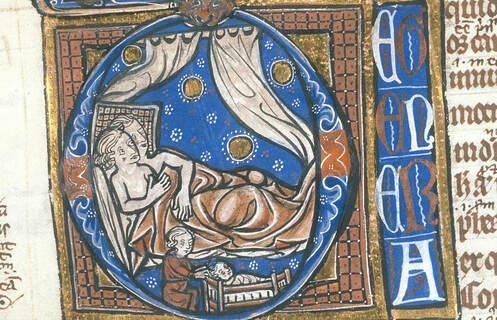|
Rosalynd Rea is an undergrad at Wellesley College in Wellesley, MA currently working on her senior honors thesis The Medieval Slut: Sexual Identities of Medieval Women in the Patriarchal Narratives of the Decameron and Canterbury Tales. She has previously been published with Counterpoint Magazine and her mother’s refrigerator. She hopes this article earns a spot there as well. Find her on Instagram @roz.rea or Twitter @medievalslut. So here’s the situation: you’re young, you’re hot, you’re married, and it’s 1387. Your husband, though rich, is miserly and as such pays little attention to you, instead favoring his counting house and his best friend, the monk who happens to live with you. Your husband, being rich, expects your outward appearance to reflect his own economic situation, but remains inattentive. The dresses you’ve bought to live up to your husband’s expectations will go unpaid for and thus negate any positive reflection they might have been purchased for. Fortunately for you, the monk who lives with you has the hots for you and, as a medieval monk, also has the moral turpitude to turn you from wife to whore. Unfortunately for him, he doesn’t have the funds. He borrows from his best friend (your husband, if you’ve been paying attention) a loan “for the church.” He pays you, you have great sex, you pay off your debt, and your husband is never the wiser. Nor, as it turns out, is he the richer. When your husband asks your monk for the money back your monk responds that he gave it to you to give to him. Well, shit. You claim ignorance and tell your husband to “score it upon my taille” essentially saying to him that you’ll work this debt off in addition to your marital debt. After being paid for sex, you pay another in sex. This is Chaucer’s Shipman’s Tale, and inquiring minds want to know: are you a whore?
1 Comment
|
Sex History ContentsIf you would like to submit an article, please fill out a submission on the Contact page Archives
September 2020
|

 RSS Feed
RSS Feed